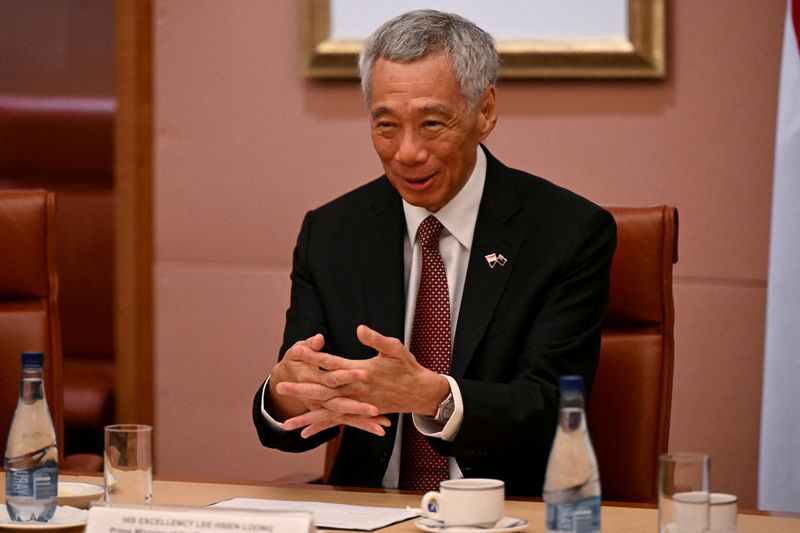SYDNEY (Reuters) - Singapore's Prime Minister Lee Hsien Loong said on Tuesday there is no consensus yet for China to join a trans-Pacific trade pact, although Singapore believed it would be possible for Beijing to meet the trade bloc's conditions.
The Comprehensive and Progressive Agreement for Trans-Pacific Partnership (CPTPP) trade pact removes 95% of tariffs between its 11 members - Australia, Brunei, Canada, Chile, Japan, Malaysia, Mexico, New Zealand, Peru, Singapore and Vietnam.
Another five nations have applied to join - Britain, China, Taiwan, Ecaudor and Costa Rica. Members agreed in February that Britain can proceed with its application, as it looks for new trading relationships after leaving the European Union.
Australia has expressed reservations about China, its largest trading partner, meeting the pact's requirements on free trade, and has urged Beijing to lift sanctions imposed on a raft of Australian products during a diplomatic dispute.
Lee told reporters during a visit to Canberra that Singapore, chair of the CPTPP committee, understood Australia's view.
"I think it is good if China is able to join the CPTPP," he said, adding it would be possible through negotiations for Beijing to fully meet the pact's conditions.
"For China to join the CPTPP there has to be consensus among all the existing members... I don't think there is a consensus yet."
In a statement released after a meeting in Singapore this month, trade pact members said Britain's application was progressing, and subsequent applicants would need to show "a demonstrated pattern of complying with their trade commitments".
Australian Trade Minister Don Farrell told Nikkei Asia last week he didn't believe there was any prospect of China joining the pact.

China last year wrote to the Australian parliament, seeking support for its application, describing the strength of Chinese trade with Australia and avoiding mention of billions of dollars in punitive sanctions imposed by Beijing.
The United States formally withdrew from pact negotiations in 2017 under President Donald Trump.